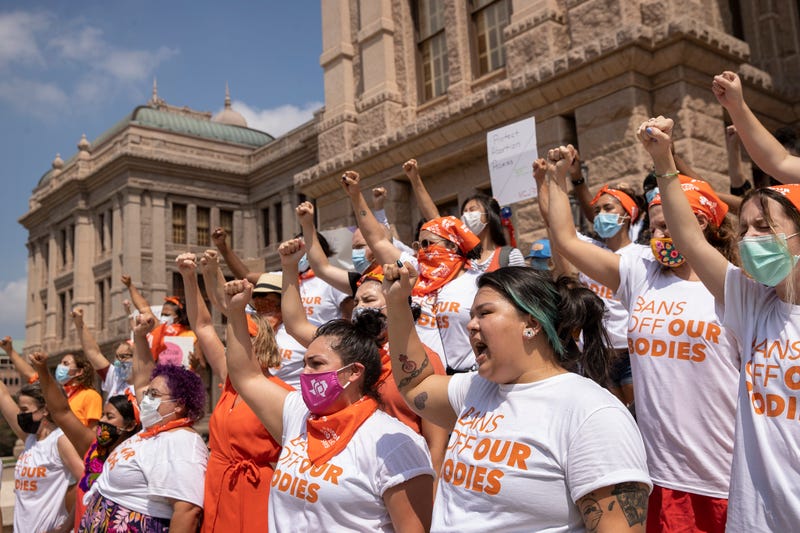
PHILADELPHIA (KYW Newsradio) - Since SB8 went into effect in Texas on Sept. 1, banning all abortions after a fetal heartbeat is detected at roughly six weeks, Americans started to see the fallout.

Some of it is what you'd expect -- clinics have stopped performing abortions after six weeks of pregnancy (which is before most women are even aware they are pregnant), and women seeking abortions are driving out of state or even to Mexico. But the ripple effects of this decision could change how constitutional law is enforced nationwide.
Rachel Rebouché, interim dean and professor at Temple University Beasley School of Law, explains that this law is unique because the state doesn't enforce it. Instead, individual citizens have the right to sue providers or anyone "aiding and abetting" an abortion.
"That's really novel," she says. "It puts enforcement of a state law in the private citizens' hands." That's what has made it harder for federal courts to shut down this law.
Normally a provider or Planned Parenthood could sue the state for violating a past Supreme Court ruling, but since the state is not enforcing the law, that won't hold up in court. "It doesn't fit into the scheme of how we normally think about judging the constitutionality of these laws before they go into effect," Rebouché said.
This concept isn't just bad for Democrats. It's a workaround that could be used to sidestep any part of the Constitution, like the Second Amendment.
"The politics of it could cut left and right," Rebouché said, "and the bigger question is, what does it mean to empower citizens to enforce a law and not the state?"
While court decisions around this law may be difficult to comprehend, the real-life effects on people are tangible. Rebouché says that limiting access to abortion hurts people who are already struggling, citing that 3/4 of abortion patients are living at or below the federal poverty level and simply can't afford to raise another child.
"With the uncertainty that this law produces, the ripple effects of what abortion is legal and where -- that's a difficult conversation to start to change as this law might flicker on and off in enforceability,” Rebouché says.
“So I think it's going to leave a wake of confusion, and it's going to be people who are bearing the costs. It's going to be patients who bear that cost."
Rebouché talked about the legal and human effects of this law, plus what abortion law in the U.S. could look like a year from now. To hear it all, listen to the full episode of KYW Newsradio's In Depth podcast.


